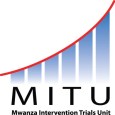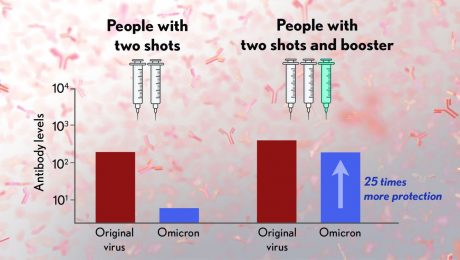Immunogenicity and Safety Results Comparing Single Dose Human Papillomavirus Vaccine with Two or Three Doses in Tanzanian Girls – the DoRIS Randomised Trial.
Jones, D. W., Changalucha, J., Whitworth, H., Pinto, L. A., Mutani, P., Indangasi, J., Kemp, T. J., Hashim, R., Kamala, B., Wiggins, R., Songoro, T., Connor, N., Mbwanji, G., Pavon, M., Lowe, B., Mmbando, D., Kapiga, S., Mayaud, P., Dillner, J., … Baisley, K.
SSRN Electronic Journal.
DOI: https://doi.org/10.2139/ssrn.4055429.
Longitudinal inconsistencies in women’s self-reports of lifetime experience of physical and sexual IPV: evidence from the MAISHA trial and follow-on study in North-western Tanzania.
Abramsky T, Harvey S, Mosha N, Mtolela G, Gibbs A, Mshana G, Lees S, Kapiga S, Stöckl H.
BMC Womens Health. 2022 Apr 15;22(1):120.
DOI: 10.1186/s12905-022-01697-y.
PMID: 35428296
The prevalence and incidence of HIV in the ART era (2006-2016) in North West Tanzania.
Mosha NR, Todd J, Mukerebe C, Marston M, Colombe S, Clark B, Beard J, Mtenga B, Slaymaker E, Boerma T, Zaba B, Urassa M.
Int J STD AIDS. 2022 Jan 18:9564624211065232.
DOI: 10.1177/09564624211065232.
PMID: 35040735
Coping responses to intimate partner violence: narratives of women in North-west Tanzania.
Dwarumpudi A, Mshana G, Aloyce D, Peter E, Mchome Z, Malibwa D, Kapiga S, Stöckl H.
Cult Health Sex. 2022 Mar 4:1-15.
DOI: 10.1080/13691058.2022.2042738.
PMID: 35244501
Adolescent mental health research in Tanzania: a study protocol for a priority setting exercise and the development of an interinstitutional capacity strengthening programme.
Obasi, A., Seekles, M., Boshe, J., Dow, D., Mmbaga, B., Ngakongwa, F., Okello, E., Renju, J., Shayo, E., Simbee, G., Todd, J., & Oriyo, N.
BMJ Open, 12(2), e054163.
DOI: https://doi.org/10.1136/bmjopen-2021-054163




ABOUT THE PROGRAM
Supported by the Fogarty International Center at the National Institutes of Health, this research training program is designed to increase the number of clinical investigators in Mwanza with rigorous training in patient-oriented HIV research. Applicants interested in mentored research training in the following HIV-related research topics are encouraged to apply:
- HIV prevention and vaccine research
- Implementation of HIV testing and treatment
- Women’s health and HIV
- HIV and co-infections
- HIV and cardiovascular disease.
Participants in the program may be sponsored to enroll in the MSc in Epidemiology and Biostatistics or PhD program at the Catholic University of Health and Allied Sciences (CUHAS).
APPLICATION REQUIREMENTS
The following documents are required to apply for the Fogarty Research Training Program:
- One-page summary of your education and experience to date, your career goals, and a brief summary of your proposed research project
- Curriculum Vitae
- Letter of support from your mentor
APPLICATION PROCESS
For full details on the application requirements and application process, please visit the Application Portal webpage using the link below.
APPLICATION DEADLINE
Applications close on 1 May 2022 at 11:59 EAT.
SHARE WITH YOUR NETWORK
If you are interested in sharing this research training program within your own networks, please download the printable poster and flyer below.
If you would like more details about the program, please contact lir2020@med.cornell.edu
The Role of Structural Factors in Support-Seeking Among Women Experiencing Intimate Partner Violence (IPV) in Mwanza, Tanzania: Findings From a Qualitative Study.
Selestine V, Harvey S, Mshana G, Kapiga S, Lees S.
Violence Against Women. 2022 Feb 25:10778012221077130
DOI: 10.1177/10778012221077130.
PMID: 35213259
Co-development and piloting of a menstrual, sexual and reproductive health intervention to improve social and psychological outcomes among secondary schoolgirls in Northern Tanzania: the PASS MHW study protocol.
Okello E, Rubli J, Torondel B, Makata K, Ayieko P, Kapiga S, Greco G, Renju J.
BMJ Open. 2022 Feb 7;12(2):e054860.
DOI: 10.1136/bmjopen-2021-054860.
PMID: 35131831.
A social worker intervention to reduce post-hospital mortality in HIV-infected adults in Tanzania (Daraja): Study protocol for a randomized controlled trial.
Kisigo GA, Issarow B, Abel K, Hashim R, Okello ES, Ayieko P, Lee MH, Grosskurth H, Fitzgerald D, Peck RN, Kapiga S.
Contemp Clin Trials. 2022 Jan 12:106680.
DOI: 10.1016/j.cct.2022.106680
PMID: 35032664
Source:
NIH Director’s Blog

Credit: Adapted from Pfizer, Dec. 8, 2021
There’s been great concern about the new Omicron variant of SARS-CoV-2, the coronavirus that causes COVID-19. A major reason is Omicron has accumulated over 50 mutations, including about 30 in the spike protein, the part of the coronavirus that mRNA vaccines teach our immune systems to attack. All of these genetic changes raise the possibility that Omicron could cause breakthrough infections in people who’ve already received a Pfizer or Moderna mRNA vaccine.
So, what does the science show? The first data to emerge present somewhat encouraging results. While our existing mRNA vaccines still offer some protection against Omicron, there appears to be a significant decline in neutralizing antibodies against this variant in people who have received two shots of an mRNA vaccine.
However, initial results of studies conducted both in the lab and in the real world show that people who get a booster shot, or third dose of vaccine, may be better protected. Though these data are preliminary, they suggest that getting a booster will help protect people already vaccinated from breakthrough or possible severe infections with Omicron during the winter months.
Though Omicron was discovered in South Africa only last month, researchers have been working around the clock to learn more about this variant. Last week brought the first wave of scientific data on Omicron, including interesting work from a research team led by Alex Sigal, Africa Health Research Institute, Durban, South Africa [1].
In lab studies working with live Omicron virus, the researchers showed that this variant still relies on the ACE2 receptor to infect human lung cells. That’s really good news. It means that the therapeutic tools already developed, including vaccines, should generally remain useful for combatting this new variant.
Sigal and colleagues also tested the ability of antibodies in the plasma from 12 fully vaccinated individuals to neutralize Omicron. Six of the individuals had no history of COVID-19. The other six had been infected with the original variant in the first wave of infections in South Africa.
As expected, the samples showed very strong neutralization against the original SARS-CoV-2 variant. However, antibodies from people who’d been previously vaccinated with the two-dose Pfizer vaccine took a significant hit against Omicron, showing about a 40-fold decline in neutralizing ability.
This escape from immunity wasn’t complete. Indeed, blood samples from five individuals showed relatively good antibody levels against Omicron. All five had previously been infected with SARS-CoV-2 in addition to being vaccinated. These findings add to evidence on the value of full vaccination for protecting against reinfections in people who’ve had COVID-19 previously.
Also of great interest were the first results of the Pfizer study, which the company made available in a news release [2]. Pfizer researchers also conducted laboratory studies to test the neutralizing ability of blood samples from 19 individuals one month after a second shot compared to 20 others one month after a booster shot.
These studies showed that the neutralizing ability of samples from those who’d received two shots had a more than 25-fold decline relative to the original virus. Together with the South Africa data, it suggests that the two-dose series may not be enough to protect against breakthrough infections with the Omicron variant.
In much more encouraging news, their studies went on to show that a booster dose of the Pfizer vaccine raised antibody levels against Omicron to a level comparable to the two-dose regimen against the original variant (as shown in the figure above). While efforts already are underway to develop an Omicron-specific COVID-19 vaccine, these findings suggest that it’s already possible to get good protection against this new variant by getting a booster shot.
Very recently, real-world data from the United Kingdom, where Omicron cases are rising rapidly, are providing additional evidence for how boosters can help. In a preprint [3], Andrews et. al showed the effectiveness of two shots of Pfizer mRNA vaccine trended down after four months to about 40 percent. That’s not great, but note that 40 percent is far better than zero. So, clearly there is some protection provided.
Graph showing Pfizer booster is about 80% effective after 2 weeks against Omicron

Credit: Andrews N, et al., KHub.net 2021
Most impressively (as shown in the figure from Andrews N, et al.) a booster substantially raised that vaccine effectiveness to about 80 percent. That’s not quite as high as for Delta, but certainly an encouraging result. Once again, these data show that boosting the immune system after a pause produces enhanced immunity against new viral variants, even though the booster was designed from the original virus. Your immune system is awfully clever. You get both quantitative and qualitative benefits.
It’s also worth noting that the Omicron variant mostly doesn’t have mutations in portions of its genome that are the targets of other aspects of vaccine-induced immunity, including T cells. These cells are part of the body’s second line of defense and are generally harder for viruses to escape. While T cells can’t prevent infection, they help protect against more severe illness and death.
It’s important to note that scientists around the world are also closely monitoring Omicron’s severity While this variant appears to be highly transmissible, and it is still early for rigorous conclusions, the initial research indicates this variant may actually produce milder illness than Delta, which is currently the dominant strain in the United States.
But there’s still a tremendous amount of research to be done that could change how we view Omicron. This research will take time and patience.
What won’t change, though, is that vaccines are the best way to protect yourself and others against COVID-19. (And these recent data provide an even-stronger reason to get a booster now if you are eligible.) Wearing a mask, especially in public indoor settings, offers good protection against the spread of all SARS-CoV-2 variants. If you’ve got symptoms or think you may have been exposed, get tested and stay home if you get a positive result. As we await more answers, it’s as important as ever to use all the tools available to keep yourself, your loved ones, and your community happy and healthy this holiday season.
References:
[1] SARS-CoV-2 Omicron has extensive but incomplete escape of Pfizer BNT162b2 elicited neutralization and requires ACE2 for infection . Sandile C, et al. Sandile C, et al. medRxiv preprint. December 9, 2021. [2] Pfizer and BioNTech provide update on Omicron variant . Pfizer. December 8, 2021. [3] Effectiveness of COVID-19 vaccines against the Omicron (B.1.1.529) variant of concern . Andrews N, et al. KHub.net preprint. December 10, 2021.Links:
COVID-19 Research (NIH)
Sigal Lab (Africa Health Research Institute, Durban, South Africa)





